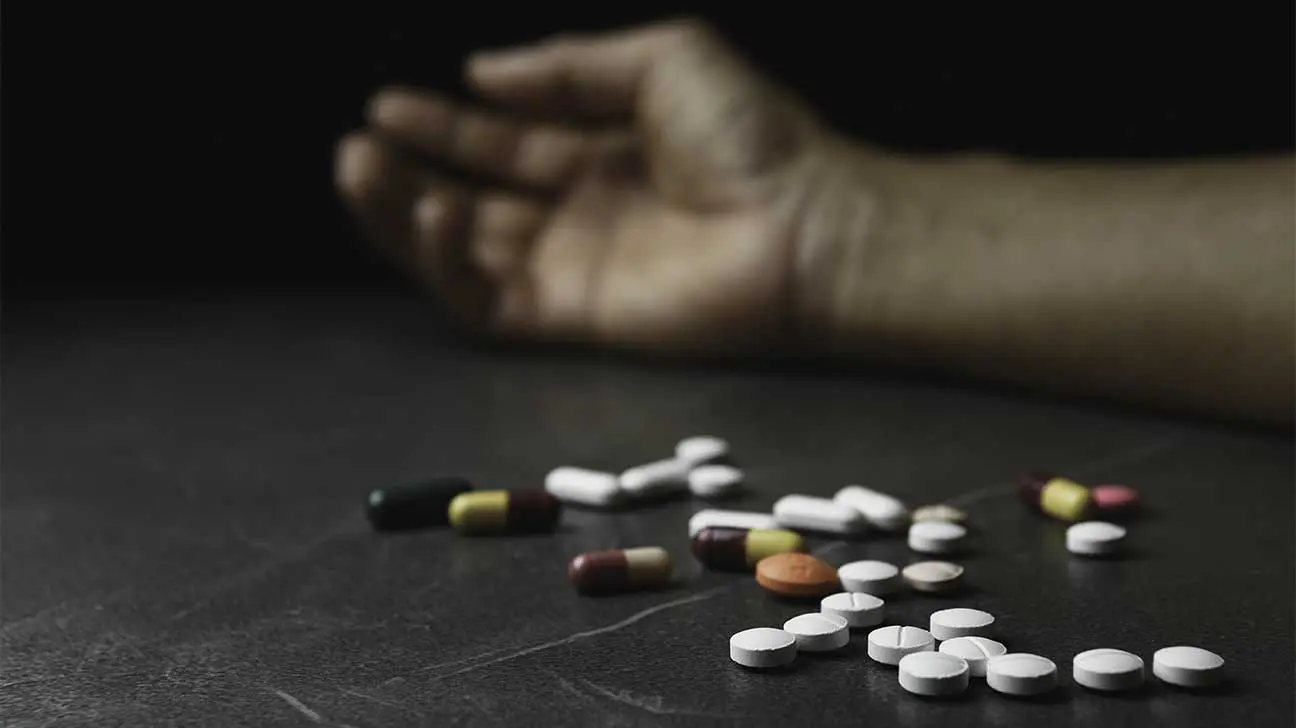
Benadryl, known by its medical name as diphenhydramine, is an antihistamine used to treat allergic reactions and seasonal allergies.
Ingredients vary depending on the type of Benadryl medication being used, but all Benadryl medications contain diphenhydramine.
A fatal dose of diphenhydramine is about 20 to 40 milligrams per kilogram (mg/kg).
Learn more about the fatal doses of commonly abused drugs.
What To Know About A Lethal Dose Of Benadryl (Diphenhydramine)
The lethal dose of diphenhydramine depends on a few factors, such as the condition it’s being used to treat and the person’s age.
The lethal dose of diphenhydramine has been estimated to be 20 to 40 mg per 1 kg for adults. For children, the lethal dose is 500 milligrams (mg).
According to a 2013 report from the American Association of Poison Control Centers (AAPCC), most intoxication and overdose cases occur in children six years old and under.
Children are at a higher risk of overdose than adults because they are more sensitive to the effects of antihistamines.
How Likely Is Overdose On Benadryl (Diphenhydramine)?
Studies have found that diphenhydramine toxicity is dose-dependent, meaning the effects of the drug change as the dose changes.
If a person intentionally or unintentionally takes too much diphenhydramine, it can be lethal.
While there have been fatal cases over the last few decades, death resulting from diphenhydramine overdose is not common.
How Does Benadryl (Diphenhydramine) Overdose Happen?
The lethal dose of 20 to 40 mg/kg is three to five times the recommended daily dose, so an overdose on Benadryl is intentional in most cases.
A person might intentionally ingest a large amount of Benadryl in an act of suicide or self-harm.
A study surveying drug-related deaths in the U.S. from 2011 to 2016 found that diphenhydramine is one of the top four most frequently mentioned drugs in suicide overdose cases.
Others intentionally overdose to feel a high, although euphoria does not usually occur after taking Benadryl. In accidental cases, Benadryl is usually combined with other medications and substances.
What Happens After A Benadryl Overdose?
There are multiple signs of Benadryl overdose.
Some of the non-life-threatening signs of overdose include:
- dry eyes
- blurred vision
- dry mouth
- dry, red skin
- ringing in the ears
- drowsiness
- inability to urinate
An overdose on Benadryl can cause a number of more serious and potentially fatal health risks.
A few of these include:
- fetal malformations and complications in pregnant women
- liver damage
- cardiac arrest
- heavy sedation
- unconsciousness
- depression
- seizures
- rapid heartbeat
- hallucinations
A person who overdoses on Benadryl can develop anticholinergic symptoms (caused by drugs that block the action of the neurotransmitter acetylcholine), seizures, and coma.
What To Do If Someone Has Overdosed On Benadryl (Diphenhydramine)
If you or a loved one are exhibiting any symptoms of overdose, seek emergency help right away.
A diphenhydramine overdose is not always fatal. Call 911 or your local poison center and they will guide you in what to do next.
Call this national hotline number to locate your local poison control center: 1-800-222-1222.
Seeking Treatment For Benadryl Abuse
If you or someone you love is facing a substance use disorder, call us today. We have more information for you about your options for addiction recovery.
Addiction Resource aims to provide only the most current, accurate information in regards to addiction and addiction treatment, which means we only reference the most credible sources available.
These include peer-reviewed journals, government entities and academic institutions, and leaders in addiction healthcare and advocacy. Learn more about how we safeguard our content by viewing our editorial policy.
- Access Medicine — Chapter 18. Antihistamines
https://accessmedicine.mhmedical.com/content.aspx?sectionid=42069832&bookid=391 - National Center for Biotechnology Information — 2013 Annual Report of the American Association of Poison Control Centers' National Poison Data System (NPDS): 31st Annual Report
https://pubmed.ncbi.nlm.nih.gov/25559822/ - National Center for Biotechnology Information — Drugs Most Frequently Involved in Drug Overdose Deaths: United States, 2011-2016
https://pubmed.ncbi.nlm.nih.gov/30707673/ - National Center for Biotechnology Information — Massive diphenhydramine overdose resulting in death
https://pubmed.ncbi.nlm.nih.gov/7073039/#:~:text=Abstract,overdose%20does%20not%20commonly%20occur.' - U.S. National Library of Medicine: Medline Plus — Diphenhydramine overdose
https://medlineplus.gov/ency/article/002636.htm


